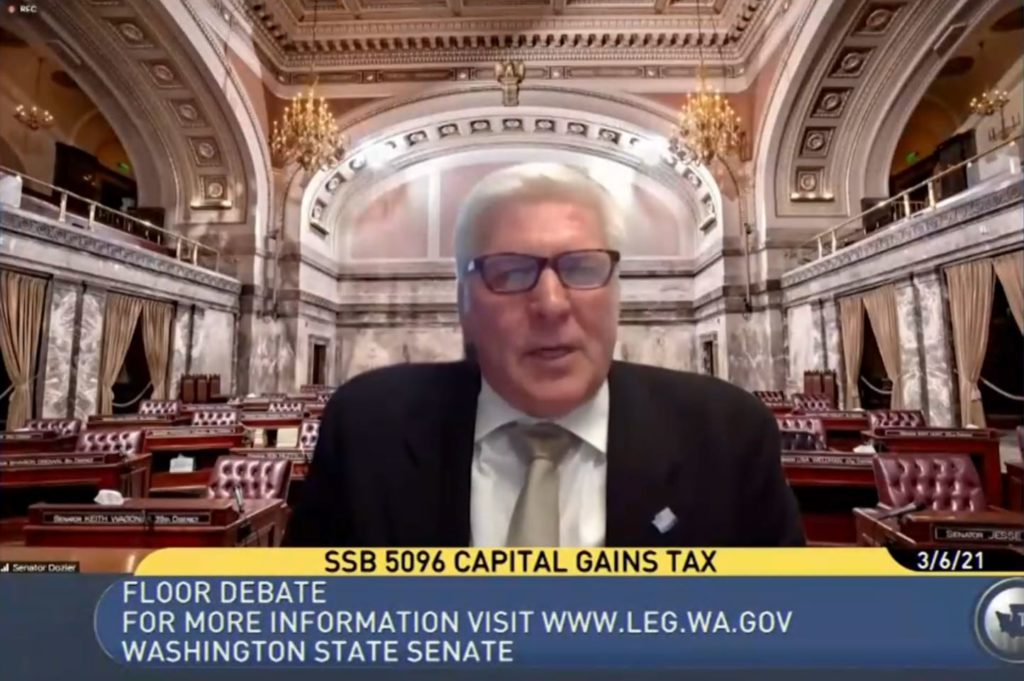Votes against income tax bill on Senate floor, as Senate Dems pass measure 25-24

To see video from Senate floor debate, click here.
OLYMPIA – If the income tax bill passed by the Senate Saturday makes it into law, you can be sure it will grow and grow, and eventually hit the middle class, said state Sen. Perry Dozier, R-Waitsburg.
Dozier was among the 24 lawmakers who voted against the income tax in the Senate Saturday, including all members of the Senate Republican Caucus. But Democrats had more votes, and it passed 25-24. The measure now moves to the House for further consideration.
“I really feel that this income tax on capital gains is really just a starter tax that most likely will lead to a broader income tax in this state,” Dozier said.
The measure imposes a narrow income tax on capital gains over $250,000, capturing primarily income from highly compensated employees who receive stock options. But Dozier said the starter income tax sets the state up for a broader income tax, the moment there is a downturn in the economy. That’s because tax collections from high earners will plummet in the next recession. “In a down market, nobody sells,” he explained.
Meanwhile, the Legislature will write budgets that count on a steady flow of tax collections – about $1 billion every two years. So when tax collections fall, future legislatures would have to find hundreds of millions of dollars in a hurry. An expansion of the income tax would provide an easy solution. Dozier noted this is exactly what has happened in states with high-earner taxes – they don’t stay taxes on high-earners for long.
“Anticipated revenue will get you in trouble every time,” Dozier said.
He noted that the state of California recorded the biggest shortfall in its history last year — $54 billion – and that the Golden State’s governor, Gavin Newsom, told the press that the biggest reason the deficit was larger relative to other states was California’s overreliance on taxes on the wealthy.
Federal taxes on capital gains are steep enough without an extra state tax on top of it, Dozier said. He noted that his father in law purchased farmland north of Pasco in the ‘40s. When development approached and it was time to sell, federal taxes proved very stiff – about 40 percent of every payment has to be earmarked for taxes. “Forty percent – that’s an awful lot to lose each time due to taxes,” he said.
Dozier asked the Senate to imagine how much worse it will be if a new state tax is added.
“This is a lead-in to take away from the middle class, the people it hurts the most,” he said.










